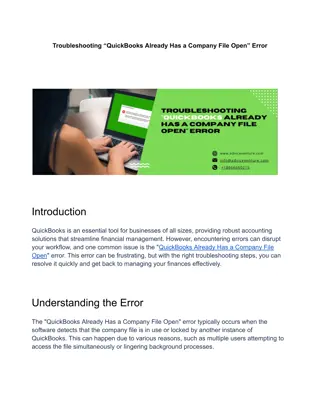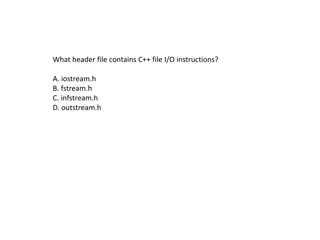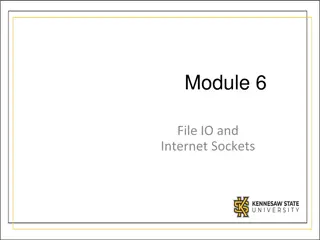
Psychological Aspects of Coping with Cancer Stressors
Explore the psychological aspects of coping with cancer stressors, including various coping styles and behavioral issues. Learn how patients adjust and live successfully with cancer, dealing with fears, and employing coping strategies to manage stress effectively.
Download Presentation

Please find below an Image/Link to download the presentation.
The content on the website is provided AS IS for your information and personal use only. It may not be sold, licensed, or shared on other websites without obtaining consent from the author. If you encounter any issues during the download, it is possible that the publisher has removed the file from their server.
You are allowed to download the files provided on this website for personal or commercial use, subject to the condition that they are used lawfully. All files are the property of their respective owners.
The content on the website is provided AS IS for your information and personal use only. It may not be sold, licensed, or shared on other websites without obtaining consent from the author.
E N D
Presentation Transcript
PSYCHOLOGICAL ASPECTS OF CANCER
PSYCHOLOGY Mental health Emotions Behavior Presentation title 2
INTRODUCTION A variety of coping skills are required to adjust to and live successfully with cancer. Cancer patients have to cope with a variety of stressors, including loss of function of body system, pain, nausea and vomiting, anorexia, fatigue, social isolation, loss of self esteem, fear of death, adjusting to hospital environment, sexual problems and fear of reoccurrence of fever. Presentation title 3
DEFINITION Coping is the dynamic process by which a client responds to a problem to bring out relief. Coping strategies are unconscious specific skills that are consciously selected by a person to help manage the effects of stress. Presentation title 4
COPING STYLES RATIONAL INQUIRY- seek more information MUTUALITY- share concern and talk to other people AFFECT REVERSAL- make light of the situation DISPLACEMENT- do other things for distraction CONFRONTATION- take action, confront the problem REDEFINITION- focus on positive aspects of situation TENSION REDUCTION- find an escape with drink, drugs Presentation title 5
CONTD.. PASSIVE ACCEPTANCE- resign yourself SUPPRESSION- try to forget, put it out of mind. IMPULSIVITY- do something impractical DISENGAGEMENT- withdraw into isolation PROJECTION- blame someone or something else. COOPERATIVE COMPLIANCE- seek direction, do what you are told CONSIDERATION OF ALTERNATIVES- negotiate a alternative Presentation title 6
BEHAVIOURAL ISSUES Smoking Diet Sexual behavior Sun exposure Chemical exposure Breast self examination Presentation title 7
STAGES OF PSYCHOLOGICAL FOCUS Diagnosis Treatment Outcome Evaluation Quality of life Doctor patient communication Presentation title 8
UNIVERSAL PATIENT FEARS 6 D s of fear Death Dependency Disfigurement Disability Disruption(relationship) Discomfort Presentation title 9
PROBLEMS EXPERIENCED Knowledge of the cancer Inadequacy of information Guilt about causality Fear of pain Undistinguished death Worries about reaction of family and friends Chemo/radiation Loss of physical and sexual function Presentation title 10
THERAPY AND DECISION MAKING Systematic therapy (chemo and radiation) Decrease sexual desire Affect body image Early menopause Presentation title 11
QUALITY OF LIFE PSYCHOLOGICAL- depression, anxiety SOCIAL- personal relationships, sexual interest, leisure activities OCCUPATIONAL- employment, cope household PHYSICAL- pain, mobility, sleep, sexual dysfunction Presentation title 12
NURSING INTERVENTION Promote more effective coping strategies in dealing with cancer. Encourage and assist the patient to become at the challenges of disease and treatment more positively Help the patient develop new coping strategies throughout the course of illness. Encourage open expression of feeling and involve in decision regarding daily activities Presentation title 13
CONTD.. Give information needed at the time and answer questions, share medical information. Encourage to ask for needed support and encourage to use own support network Recognize possible response to fear and not personalize. Presentation title 14






















